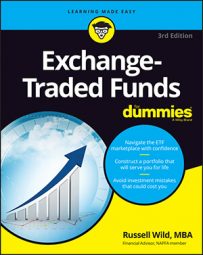New exchange-traded funds (ETFs) are being born every week, but at the same time, others are dying. About 150 ETFs in the past several years have been zipped up, closed down, folded, and sent to that Great Brokerage in the Sky. No need to shed tears for the investors; they are okay.
If you are holding shares in a particular ETF that closes down, you will generally be given at least several weeks notice. You can sell, or you can wait till the final day and receive whatever is the value of the securities held by the ETF at that point.
It isn’t like holding a bond (or an exchange-traded note) that goes belly up. You may have a bit of a hassle redoing your portfolio, and you may face sudden tax consequences. If the ETF tracks a very small segment of the market, there may be a bit of investor panic that could depress prices. But you aren’t going broke.
Most of the ETFs that have gone under are exactly the kinds of ETFs that you probably want to avoid anyway: They tracked narrow segments of the market (companies based in Oklahoma, for example); or they tracked somewhat silly and complex indexes (dividend rotation); or they were highly leveraged, exposing investors to excessive risk; or they were overpriced; or all of the above! The public simply would not buy.
Here is just a small sampling from the ETF graveyard:
Bear Stearns Current Yield Fund (YYY)
Claymore/Beacon Global Exchanges, Brokers & Asset Managers ETF (EXB)
Claymore/Robb Report Global Luxury Index ETF (ROB)
Claymore/Zacks Country Rotation ETF (CRO)
Claymore/Zacks Dividend Rotation ETF (IRO)
Direxion Daily 2-Year Treasury Bull 3x ETF (TWOL)
Geary Oklahoma ETF (OOK)
Geary Texas Large Companies ETF (TXF)
JETS DJ Islamic Market International ETF (JVS)
Guggenheim Inverse 2x Select Sector Energy ETF (REC)
WisdomTree Earnings Top 100 Fund (EEZ)
According to ETF Deathwatch, a blog that tracks potentially closing ETFs, any ETF that is at least six months old that has an “Average Daily Value Traded” of less than $100,000 for three consecutive months — or that has assets under management of less than $5 million for three consecutive months — is probably not an ETF you should get overly attached to.

